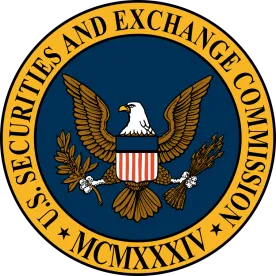Regulation Best Interest: Rollover Recommendations for Investment Advisers (Rollovers Part 5)
The SEC has issued its final Regulation Best Interest (Reg BI), Form CRS Rule, RIA Interpretation and Solely Incidental Interpretation. I am discussing the SEC’s guidance in a series of articles entitled “Best Interest Standard of Care for Advisors.”
This is the 5th of my series of articles about rollover recommendations and education under the SEC’s Regulation Best Interest and its Interpretation for Investment Advisers. (For the first four, see Best Interest for Advisors #’s 15, 16, 17 and 18.)
This article discusses the disclosure requirements for conflicts of interest involved in rollover recommendations by broker-dealers and investment advisers. Let’s start by pointing out why a rollover recommendation is a conflict of interest.
In its Interpretation for investment advisers, the SEC explained that the Congressional intent in the Advisers Act was to “eliminate, or at least to expose, all conflicts of interest which might incline an investment adviser-consciously or unconsciously-to render advice which was not disinterested”.
In other words, if an investment adviser’s recommendation would result in a benefit (e.g., fees for managing the IRA), that would be a conflict of interest that had to be disclosed.
Similarly, Reg BI defines a conflict of interest to mean “an interest that might incline a broker, dealer, or a natural person who is an associated person of a broker or dealer—consciously or unconsciously—to make a recommendation that is not disinterested.”
The definition is the same . . . a conflict of interest is an interest which might consciously or unconsciously incline a person to make a recommendation that is not disinterested. Stated slightly differently, it is a recommendation that benefits that person, for example, commissions earned from investments in the rollover IRA.
As a result, rollover recommendations are conflicted and broker-dealers and investment advisers must satisfy the disclosure rules for conflicts of interest.
While investment advisers have long been subject to a requirement to fully and fairly disclose their conflicts, Reg BI now imposes the “full and fair” disclosure standard on broker-dealers. While that may not seem like much of a change, I think it is. If you have any doubt about that, just look at the SEC’s expectations of investment advisers’ disclosures in the Share Class Selection Disclosure Initiative (SCSCI).
As a word of advice, don’t use “may” in your disclosures (as in, it “may” be a conflict). A rollover recommendation is almost always a conflict that should be affirmatively disclosed to satisfy the SEC’s expectations. (The one time that a rollover recommendation would not be a conflict is where an advisor is already managing a participant’s 401(k) account and the advisory fees would be the same in the IRA. While that is unusual, I have worked on matters where that was the case.)
The SEC does not require that the disclosures be in writing for investment advisers. For example, in its Interpretation the SEC says:
“We do not interpret an adviser’s fiduciary duty to require that full and fair disclosure or informed consent be achieved in a written advisory contract or otherwise in writing. For example, an adviser could provide a client full and fair disclosure of all material facts relating to the advisory relationship as well as full and fair disclosure of all conflicts of interest which might incline the adviser, consciously or unconsciously, to render advice that was not disinterested, through a combination of Form ADV and other disclosure and the client could implicitly consent by entering into or continuing the investment advisory relationship with the adviser.”
However, the requirements for broker-dealers are different; the disclosures must usually be in writing. Reg BI provides, in relevant part: “Disclosure obligation. The broker, dealer, or natural person who is an associated person of a broker or dealer, prior to or at the time of the recommendation, provides the retail customer, in writing, full and fair disclosure of: . . . All material facts relating to conflicts of interest that are associated with the recommendation.”
Unfortunately, the SEC does not provide guidance on “full and fair” disclosure of the conflicts involved in rollover recommendation. However, it seems that, in the usual case, a broker-dealer or investment adviser would need to disclose that it will receive compensation (e.g., fees or commissions) if the money is rolled over, but it will not if the recommendation is not accepted. To minimize risk—due to the lack of guidance from the SEC, broker-dealers and investment advisers may want to take a conservative approach and also disclose that they could have recommended that the participant leave his or her money in the plan and, in that case, the firm and its advisor would not be compensated for their advice.
To avoid confusion, I should point out that this article is about disclosures of conflicts and that broker-dealers and investment advisers must satisfy both the duty of disclosure and the duty of care. The disclosure of conflicts of interest only satisfies the duty to disclose. The duty of care must be independently satisfied in making rollover recommendations (and my earlier posts in this series discuss those requirements).
My next article will discuss the need to deliver the new Form CRS/ADV Part 3 when rollover recommendations are made.




 />i
/>i

